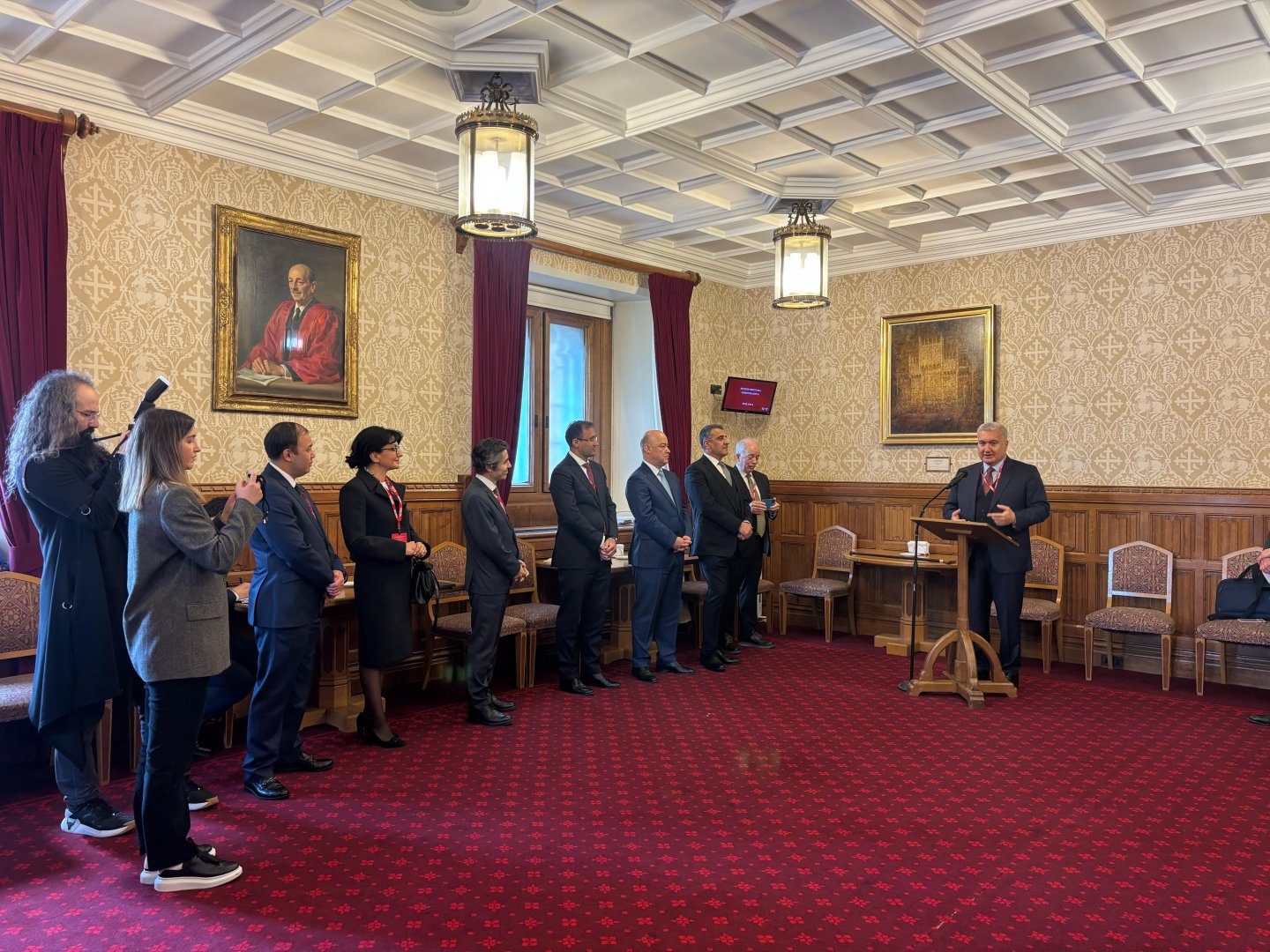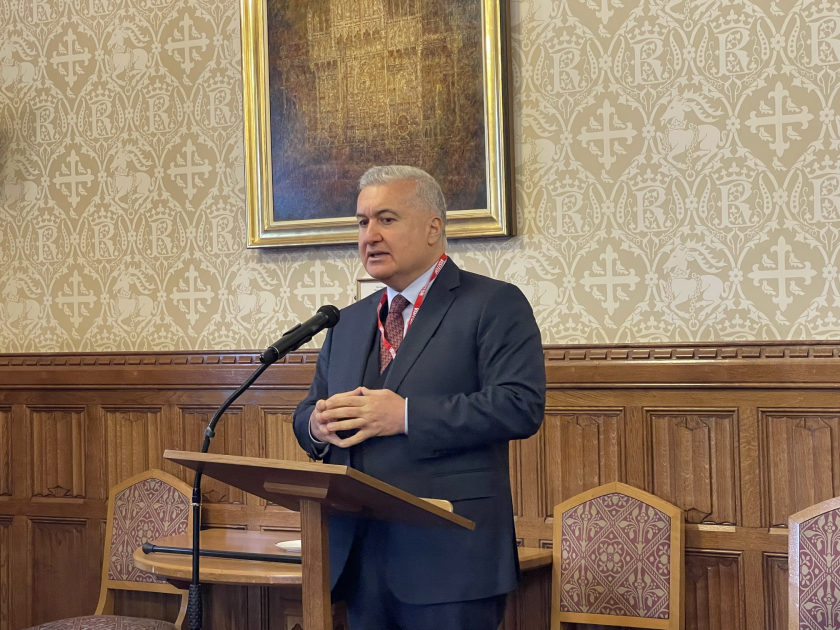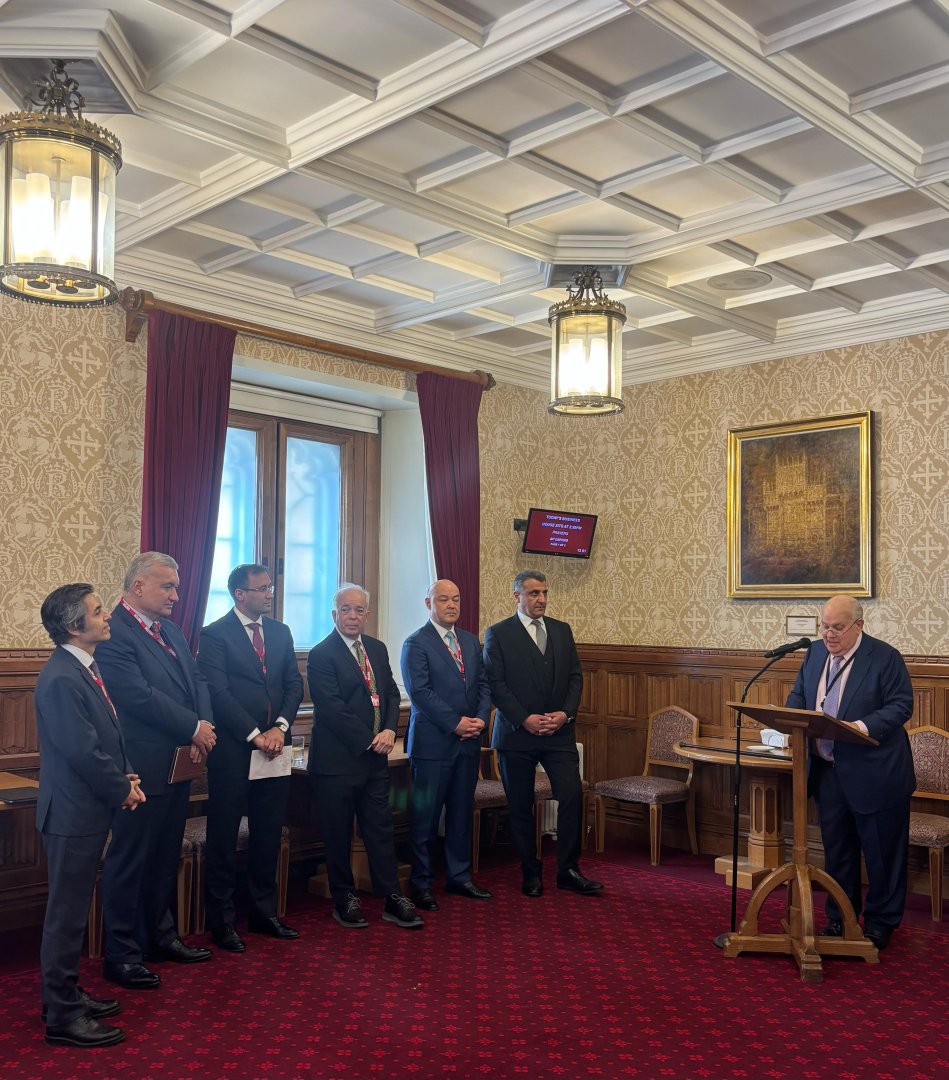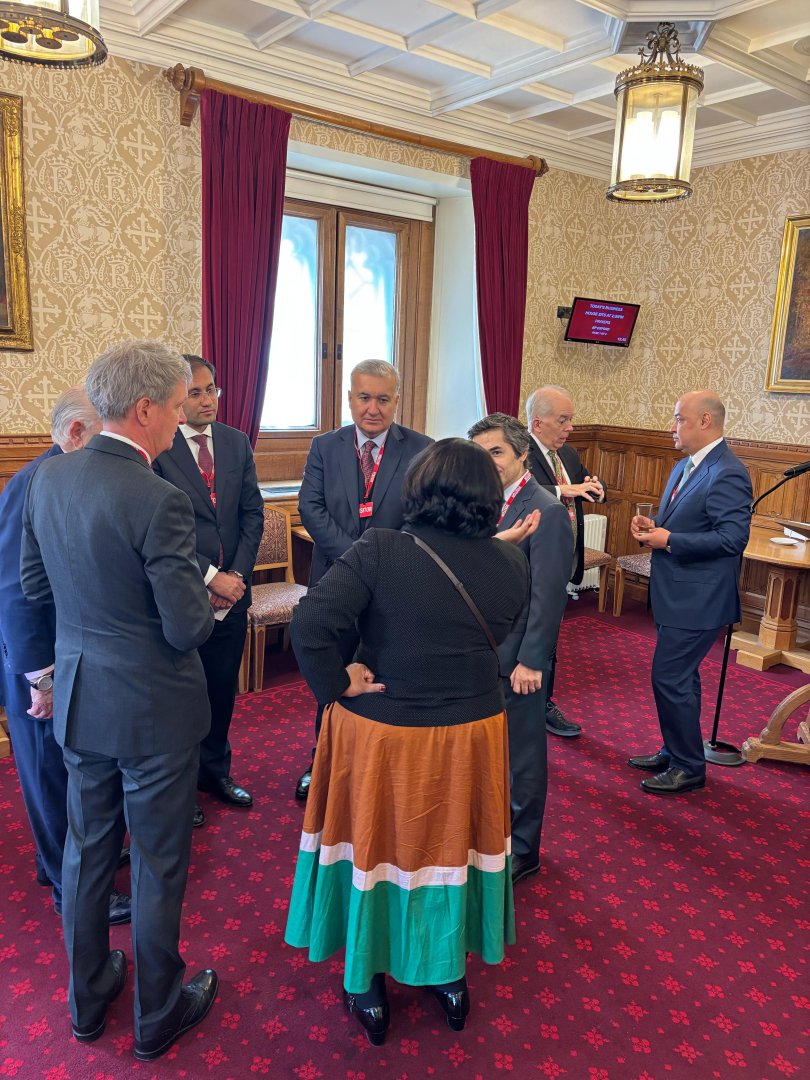BAKU, Azerbaijan, April 23. A high-level event on 'Trans-Caspian Connectivity, Energy Security, and Strategic Minerals' was held at the House of Lords (the second chamber of UK Parliament) of the United Kingdom Parliament, the Embassy of Azerbaijan in the UK told Trend.
The event was organized by the Caspian Policy Center and brought together a wide range of participants including heads and diplomats of regional embassies in the UK, members of both chambers of the British Parliament, international experts, and media representatives.
Hosting the event, Member of the House of Lords, Lord David Evans, highlighted the geopolitical and economic significance of the Trans-Caspian region, likening it to a modern Silk Road. According to him, with the cooperation of Caspian littoral states, this region can become a strategic trade corridor between Europe and China, underlining Azerbaijan’s role as a reliable partner and the region’s abundance of critical mineral resources.
Efgan Nifti, CEO of the Caspian Policy Center, emphasized the region’s growing diplomatic engagement.
“During COP29, Azerbaijan, Kazakhstan, and Uzbekistan signed an agreement on alternative energy cooperation. Plans for a submarine cable to transmit electricity to Europe via Georgia are also notable,” he said, adding that the United Kingdom already has established economic ties in the region and sees potential for deeper collaboration.
Research Director of the Caspian Policy Center, Eric Rudenshiold, noted that a “modern era of exploration” is unfolding in the region.
“In the past three years, the Middle Corridor—Trans-Caspian transport route—was developed from scratch. Today, goods are shipped from Asia to Europe via this route by Japan’s Maersk. This is no longer theoretical—it’s a reality,” he said, noting the region’s potential as a key hub for new infrastructure and energy resources.
Azerbaijan’s Ambassador to the UK, Elin Suleymanov, pointed out recent regional cooperation efforts, praising the fact that connectivity is emerging organically from within the region. He also commented on progress in normalization efforts between Armenia and Azerbaijan, stressing the importance of direct dialogue and the ability of regional countries to resolve issues on their own. He cited a recent meeting hosted by Georgia between the deputy foreign ministers of Azerbaijan, Georgia, and Armenia as a positive example.
Ambassador Suleymanov underscored the need for a comprehensive approach to the Trans-Caspian region, which is interconnected geographically, culturally, and economically. “Projects that overlook the roles of Azerbaijan, Türkiye, and Georgia cannot succeed,” he stated, noting that any route from Europe to Central Asia inevitably passes through Azerbaijan. He added that the UK can play a role in advancing the strategic importance of the Middle Corridor in cooperation with Azerbaijan and Türkiye.
Türkiye’s Ambassador to the UK, Osman Koray Ertaş, echoed this view, stating that the region is increasingly in the West’s spotlight.
“Türkiye has long worked to make the Trans-Caspian corridor a reality. Now, the geopolitical conditions are ripe for these projects to move forward. New gas supply agreements and infrastructure initiatives are clear proof of this,” he said.
In addition, Uzbek Ambassador Ravshan Usmanov and a representative of the Embassy of Kazakhstan spoke at the event, emphasizing the region's openness for cooperation. A representative of Georgia’s Embassy reaffirmed the country’s commitment to dialogue and engagement on the Trans-Caspian corridor.
The event was also attended by Armenia’s Ambassador to the United Kingdom, who delivered a speech as well.
Stay up-to-date with more news on Trend News Agency's WhatsApp channel
















